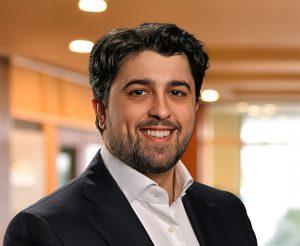ITHACA, N.Y. — A research project at Cornell University is among eight nationwide to which the American Heart Association (AHA) has awarded a total of more than $900,000 in funding.
The funding is part of the eighth round of the co-funded Congenital Heart Defect Research Awards program. The American Heart Association and the Northbrook, Illinois–based Children’s Heart Foundation are co-funding the grants.
The organizations have pledged a total of $14.3 million to fund CHD research over 10 years.
(Sponsored)

Avoid the Employment Law Mistakes that Threaten Your New Business
Amid the excitement and uncertainty that accompany the opening of a new business, entrepreneurs often overlook basic employment law requirements that can cost them dearly. These include how they classify

Ask the Expert: Top 5 IT Investments in 2026 to Drive Growth
In recent years, “digital transformation” has meant investing in new tools, migrating to the cloud, and adapting to hybrid work. As we look ahead to 2026, the conversation will shift
Mingkun Wang secured $136,236 for the research, a spokesperson for the American Heart Association tells CNYBJ in an email. Wang is a postdoctoral associate in Cornell’s Meinig School of Biomedical Engineering, per the school’s website.
Wang will use the funding for work in mechanical regulation of YAP/TAZ activity, proteins which shuttle between the cytoplasm and the nucleus in response to multiple inputs, in the growth and maturation of atrioventricular valve.
All the projects awarded funding started at the beginning of this year and will end on Dec. 31, 2022, per the AHA spokesperson.
The American Heart Association also awarded funding to researchers at institutions that include Emory University in Atlanta, Georgia; Stanford University; University of Oklahoma; and University of California, San Francisco.
“By funding research directly related to advancing the prevention, diagnosis and treatment of congenital heart defects, we are investing critical resources for more children to survive into healthy adulthoods,” Dr. Mitch Elkind, president of the American Heart Association and professor of neurology and epidemiology at Columbia University in New York City, said. “Research is the foundation of the American Heart Association. Supporting innovative research saves and improves the lives of children, and that is of utmost importance to us.”
Elkind is also a professor of neurology and epidemiology at Columbia University in New York City.
Background
Nearly 40,000 infants are born with congenital heart defects each year in the U.S. About 25 percent of babies born with a CHD require invasive treatment in their first year of life, per the AHA.
Research that helps health-care professionals understand, identify, and treat CHDs is helping these children live longer, healthier lives. While medical advancements have improved over the years, many of these children and their families still face a lifetime of challenges.
Today, it is estimated that more than 800,000 American adults are living with a CHD, the AHA said.
“At The Children’s Heart Foundation, funding the most promising CHD research is our sole mission,” Kevin Slawin, chairman of the Children’s Heart Foundation’s board of directors, said. “Through this collaboration and our ongoing commitment to this important work, we strive to make a lasting impact in the lives of CHD patients and their families.”




